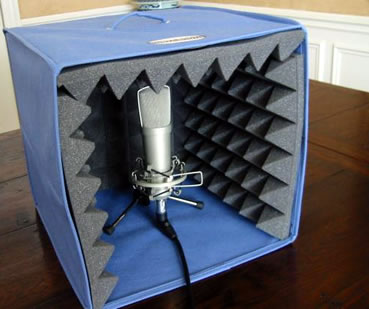I've heard that reasoning, but I've already heard that the bigger the rooms, the longer it takes waves to bounce back which also reduces the reflections and ambient noise.
So given the two options of small closet with absorbing materials versus large open room with less absorbing materials, you are would always go for option A?
Unfortunately, jrusso often chimes in on audio topics, which is a shame as he obviously knows little/nothing about the subject and just makes facts/advice up, apparently in an attempt to mislead those asking for advice. Not only is the information he gave you in post #12 incorrect, it couldn't have been more incorrect! You can ignore everything about re-inventing the wheel and not exceeding 70% reflection reduction as well, he just made that up too!
In answer to your second statement, as a general rule one would go for option B, not option A. As a general rule, a large room is better, partially due to the reduction of reflection energy over distance but also due to the most troubling fundamental room modes occurring below the limit of human hearing (in a large room). As rocksure stated, trying to treat a room to avoid lower freq room modes and get a balanced bass response is in effect impossible in a small room, no matter how much money you have to throw at the problem. However option B is a very general rule, as Alcove effectively stated, it depends what you want to achieve, for some things option A might be better, see below:
I've been reading about different recording home studios and it seems everyone has a different opinion on best practices. Let me start of by saying I know nothing I can do at home will sound "great". I'm just looking for the best results for a house. For these questions, assume when I am recording, I have some sound treatment such as hanging blankets with a c-stand in front of the talent.
1. Are small, medium, or larger rooms typically best?
2. Is it better to be in a carpeted, wooden, or tiled floors?
3. Is it better to be in a closed area like a bedroom, semi closed, or wide open?
1. There is no typically best, only typically best for a particular type of recording. If you do a search for top class commercial recording facilities, you will find they have a variety of live rooms, for different tasks. A very small dead VO or vocal booth, a much larger more lively room for acoustic instruments, a smaller more lively room for drums, a very large room for acoustic ensembles, etc.
2. As with question #1, it depends. Carpeted tends to be better for film/TV audio post applications, wooden floors tend to be better for acoustic instruments, tiled is usually avoided (although there are some applications). Again though, this is all a generalisation.
3. Just as above, it depends. Although for most things, a typical bedroom is just about the worst environment. The problem with semi-closed or wide open spaces is noise getting into the recording environment and contaminating the recording.
As Alcove stated, we really need more information. For example, there's a good chance that your idea of small, medium and large are quite different to ours. The other problem is that it's probable that the best environment for one of the things you want to record is a particularly bad environment for one of the other things! For example, the ideal environment for recording ADR, as Alcove said, is a quite large, slightly dead, very neutral room. This is so the talent can stand back 3ft or so from the mic/s, giving much better acoustic perspective and a much better match with production sound. If on the other hand you're recording acoustic instruments like guitar, piano, wind or other string instruments, then a similar fairly large sized room would be good but you'd ideally want a completely different (effectively opposite!) acoustic response from the room, much more lively and coloured. For voice over you typically want a small, very dead room. For recording vox (sung vocals), a medium room is good but as the singer is usually very close to the mic and outputting (singing) a fairly decent volume, then room acoustics are not so much of an issue and good results can be had even in quite small rooms (providing the reflections have been moderately well tamed).
As you can see, unless you have a large and flexible space and a very significant budget you're almost certainly going to have to compromise. Exactly what compromises you're going to have to make will depend on your budget, the room/s you have available (their dimensions/volume/shape) and exactly what you want to record. You've stated VO, ADR and music but you need to be more specific on what sort of music and what instruments. Without this information, any suggestions you might receive could be dead right for you, a complete waste of your time/money or anywhere in between! So, I second Alcove's request/demand for more specific information.
I also suggest you do some background reading of HomeTheatreShack's "
Home Acoustics Forum". To familiarise yourself with basic acoustic principles and the issues presented by home environments (room modes for example).
G





 room with everything carpeted/padded is ideal for a home studio?
room with everything carpeted/padded is ideal for a home studio?